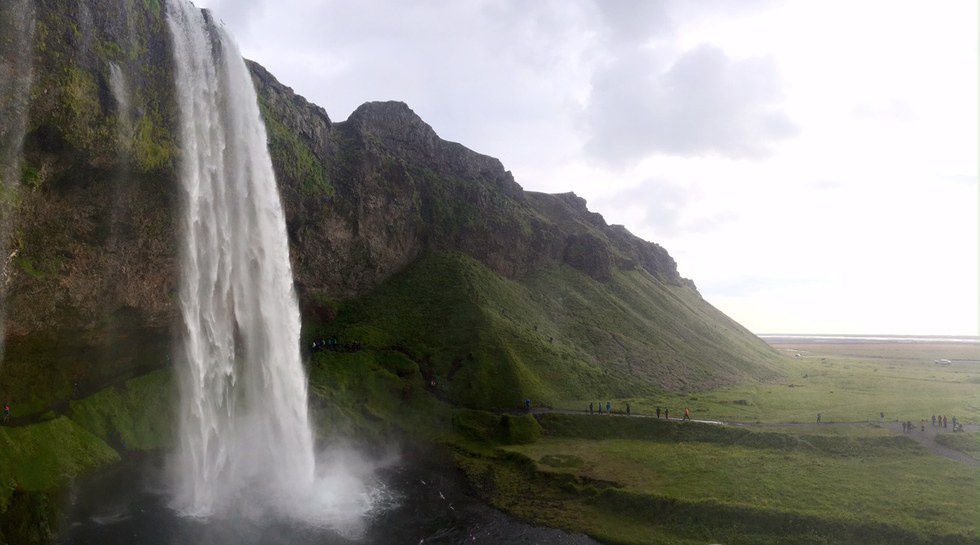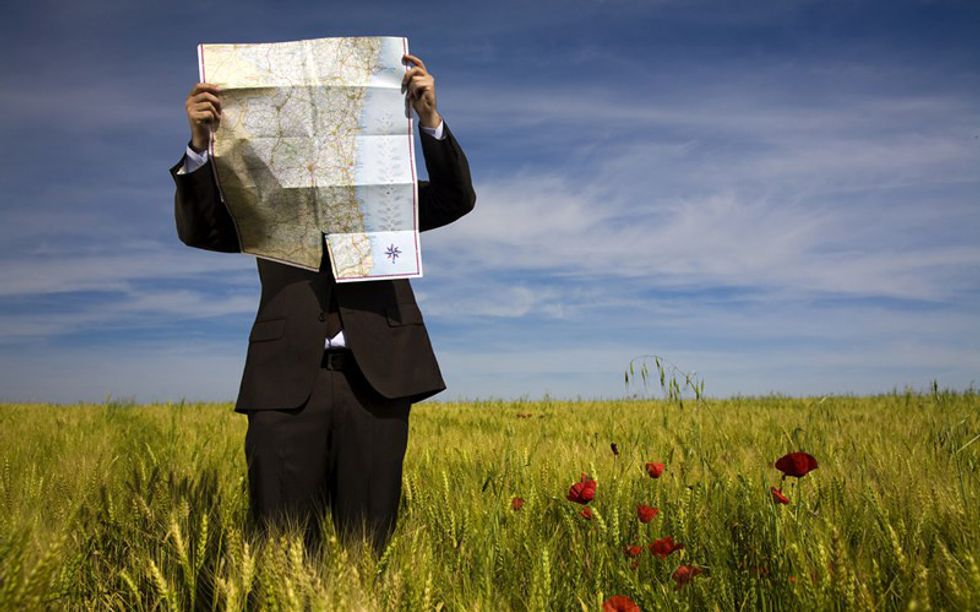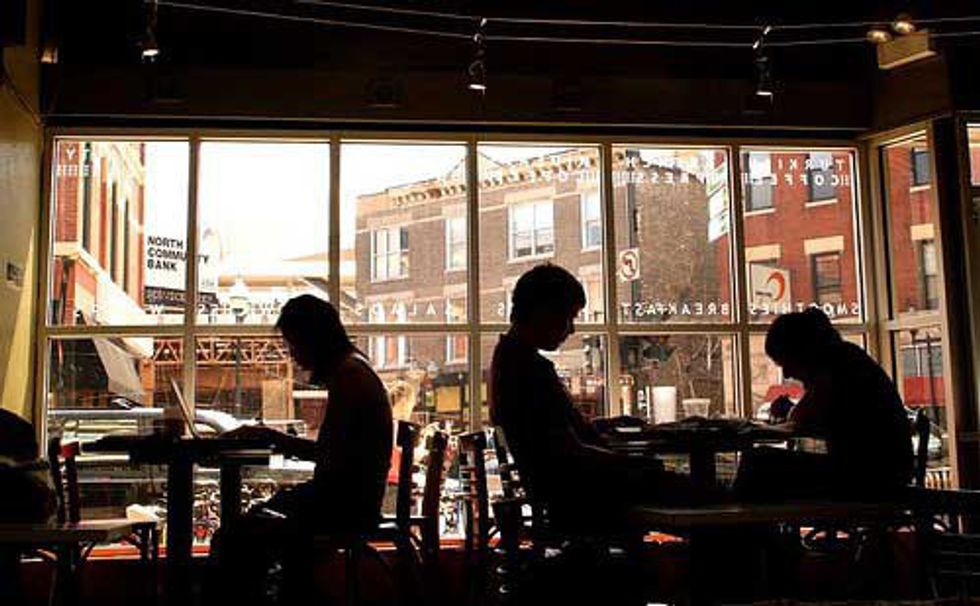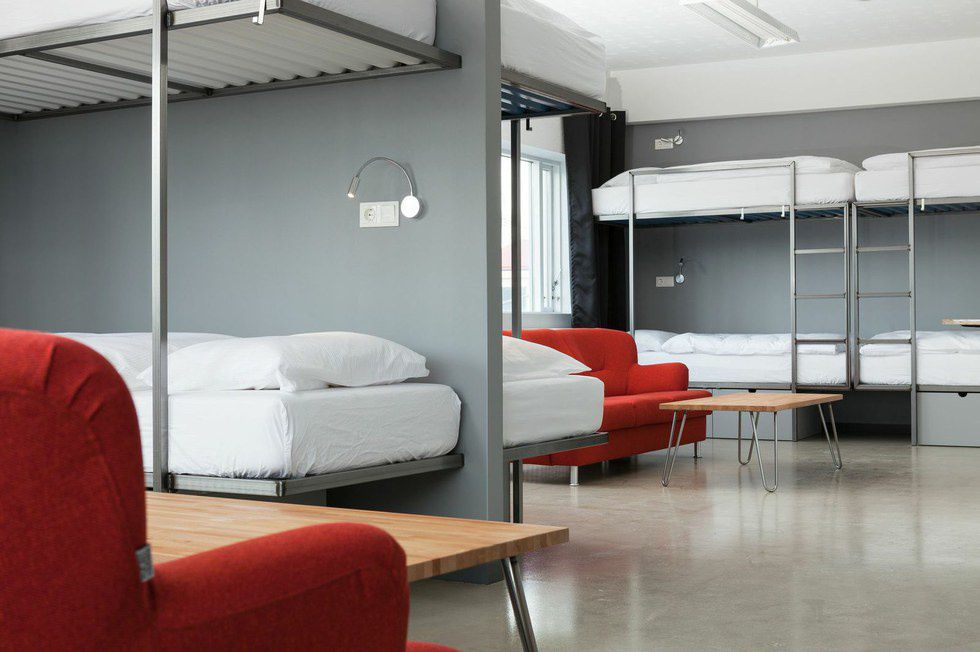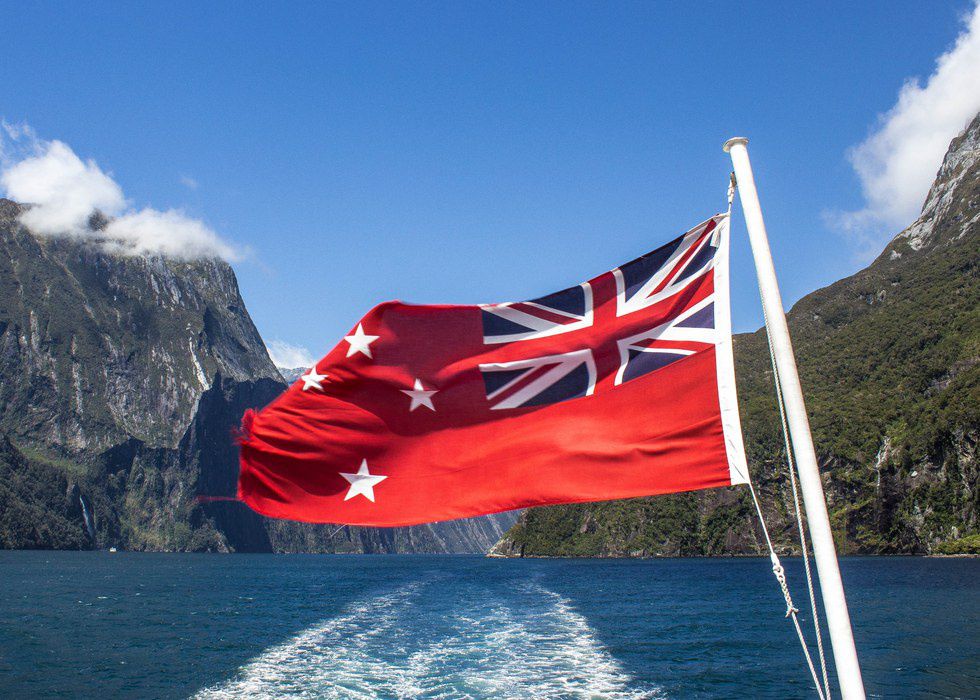In summer of 2015, I left on a month long journey through the Netherlands, Belgium, France, England, and Iceland. A month later, I lived in New Zealand for three months. My experiences in each place were unlike anything I predicted beforehand. As I was preparing for my trips and saying goodbye to close friends, they all told me I would come back a different person with new experiences and perspectives. I was skeptical, but they were right. I feel that every travel experience I've had has changed me in different and unique ways. Honestly, any good vacation or study abroad experience should leave you feeling different about yourself and your life than before you left.
Over the past couple of years, I’ve seen lots of blog posts, Instagram pictures, and romanticized videos regarding traveling in your twenties. I don’t know if this trend is a social media fad or if I’m just at the age where I notice people traveling more, or both. I do know that pictures of blonde, skinny girls holding their bae’s hand as they frolic into the forest, or into the ocean while covered in sand seem to be more and more rampant across the Internet. Additionally, I continuously come across articles about how “traveling is good for the soul” or “how your life improves when you travel by yourself.”
While traveling certainly is good for the soul and will improve your life, and while I highly recommend traveling for any young adult, this widespread trend of seeing the world fails to tell you some important things you may not anticipate. No two travel experiences are the same, and for this reason, opinions may vary regarding the contents of this article. However, in my experience, the following are eight things nobody tells you about traveling.
1. You will get homesick.
For those of you traveling alone, this especially applies to you. While staying in hostels within city centers can help you stay busy, meet new people, and have new experiences, homesickness can come at unexpected times. When you’re homesick, nothing makes it worse than not being able to contact your family or friends because it’s the middle of the night at home. After weeks of constantly saying “good morning” to my friends who replied “good night," I began to feel incredibly isolated. While these feelings do come and go, it is all part of the experience and you do learn how to cope with loneliness as time continues. Additionally, at least in my case, I never appreciated home as much as I did upon my return. The biggest advice I have for those who feel homesick or lonely in their travels is to distract yourself -- get out of your room and explore, make conversation with strangers, take yourself out on a dinner date. Everything and everyone is waiting at home for you right where you left them.
2. People experience traveling in different ways.
I had this image in my head of what it meant to travel through Europe: going to museums, taking pictures of old buildings and gardens, and going on tours. During my time in historic cities like Brussels, Paris, and London, it was these activities I did most. It was not until I got to Iceland and New Zealand that I realized what it is that brings me true joy while abroad. In Iceland, I explored and adventured. I led rather than followed. I was surrounded by beautiful nature, clean air, and limitless possibility for exploration. I found that the more I explored, the less I yearned to be home. I was constantly busy and in awe of all that surrounded me.
After traveling through both populated cities and wilderness untouched by most civilization, I realized what I prefer in traveling. As an introvert, the big cities would sometimes overwhelm me. I got annoyed with other tourists (I guess that makes me a hypocrite), and going to a museum everyday did not appeal to me, personally. As I am from the Pacific Northwest, I guess it makes sense that I prefer doing things rather than seeing things. Going to see a big building in London for fifteen minutes was amazing, of course. However, I found my paradise walking alongside the waterfalls in Iceland and atop the Southern Alps of New Zealand. I found my joy in hiking, climbing, and exploring independently of the pack. It is experiences like this that I now know to look for in my next adventures.
These are my preferences, but surely they are not everybody’s. People passionate about art, architecture, and history may find their paradise in the big cities and historical monuments that make up much of the world. Moral of this point: everyone travels in different ways. Everybody has different preferences and you do not have to do all the sightseeing, bus tours, or museum tours if that is not what brings you joy on your journey. And, likewise, you do not have to climb up a mountain or hike to the top of a waterfall if that is not your forte. The more experience you have traveling, the more you will learn what kind of traveler you are.
3. Things will go wrong.
When you're on the other side of the world with no cell phone reception, little experience speaking another language, and trying to figure out where you need to be and how to get there, things will not always go as intended. You can't predict what they will be or when they will happen, but I guarantee things will go wrong. It will be frustrating, stressful, and tiring, but when the situations arise you must trust you have the ability to work your way through them. You'll be surprised at how much your problem solving skills flourish while abroad. You'll find yourself making quick decisions, staying alert, and keeping energized until your problem is solved. You're capable of more than you think.
When these events happen, when things go wrong, it may actually be a blessing in disguise. After the event is over and you've solved your problem, you may even look back and laugh. I will never forget getting locked out of my house in Belgium, then trying to communicate with the house keeper who didn't speak a word of English. I will never forget getting lost in Amsterdam; after circling the same streets for three hours you know them like the back of your hand thereafter. These situations are all part of the experience and part of what makes the vacation memorable. Embrace them and trust you will power through them, and don't be afraid to ask locals for help.
4. You will get sick of your travel buddy.
Whether it is your mother, sibling, best friend, or significant other, there will be times when they make you want to pull your hair out. You are consistently forced to be in close quarters with your travel buddy, and the isolation of traveling can make this closeness feel almost suffocating at times. By the end of the experience, you will have grown together and grown closer. However, it can be a bumpy road along the way. Here are a few tips to not lose your mind when traveling with another person for a long period of time:
Don’t be afraid to do things on your own. Surely, this depends on where you’re traveling. Walking alone at night in a strange city is probably not the best idea. Regardless of where you are, always tell your travel buddy where you’re going, be aware of your surroundings, and only go out alone if you feel safe doing so. However, I found that walking down the street to a bakery and enjoying a coffee and good book to myself helped me keep my sanity after two weeks of absolutely no alone time, not even as I slept. Which brings me to my next tip:
Always get an adequate amount of sleep. I found that I was most annoyed with my travel buddy if I was consistently tired. If you can, try to have separate beds. While it may be cheaper to share a queen bed in a hotel room, it may be worth the extra money to book a room with two beds or stay in a dorm. In having my own bed, I not only felt like I had my own space, but I slept more soundly. Of course, this may depend on your relationship with the person you’re traveling with.
Finally, divide your time accordingly. While you and your travel buddy may have different interests as far as how you want to spend your time, it is important that you accommodate to each other’s needs. For example, you may be interested in going to museums while your travel buddy may prefer to do more outdoor activities. Split the time in half, do your separate activities independently, or come to a compromise, but make sure that both you and your travel buddy get opportunities to do what they flew across the world for. A different example of this occurred on my trip to Europe. While I have had previous experience abroad, my travel buddy had not. Traveling alone for the first time can be very exhausting, so I had to be accommodating if he wanted time to relax, take a nap, or take a rest day. This relates to my next point:
5. It’s OK to take days off.
Especially for those new to traveling, it can be a daunting experience. The idea of fitting in so much sightseeing and activities can become very overwhelming. Doing so every day can be truly exhausting and possibly hinder your time abroad. For your own physical and mental health, it is okay to take rest days to recuperate if you need. If staying at your flat or hostel for a majority of the day sounds appealing to you then it is perfectly okay to do so. Or, if you feel like you’re wasting time staying in, then go out but do something relaxing. See a movie or a play. Read a book at a cafe. Go to the nearest bar for a drink. Not every day has to be packed full of events, make sure to take time for yourself too.
6. Staying in hostels will make your experience even more memorable.
For young adults wanting to see the world, hostels are the way to go. When traveling, you should have three goals: see new things, eat new foods, and meet new people. Staying in hostels allows you to do all three of these, especially the third. There is something truly amazing about talking with people from the other side of the globe, hearing their stories, and listening to their recommendations for future travel. You will meet people and make memories with them that you will not forget. Regardless of whether or not you see them again someday, the people you meet on the other side of the world will probably stick out in your mind more than most people you've met in your daily life at home.
As many hostels are dorms, the experience can become somewhat annoying at times. Not having your own space, constantly needing to lock up your belongings, and sleeping in squeaky bunks can become obnoxious after a while. While staying in hostels has many great benefits, I would suggest mixing it up with hotels or private bedrooms for a couple of your stops. The loud snorers and squeaky beds are all part of the experience, though, and are well worth the good stories and laughs with the people you'll meet.
7. Time will pass whether you're home or away.
While I was on my trip, each day felt incredibly long depending on how busy I was. The rest days felt like they went on forever. Especially on the days when I missed my friends, boyfriend, and mother, this could get really hard. Other days it felt like a blessing. When I would call my mother and tell her I just wanted to sleep in my own bed, she assured me that while a few months may go by slowly across the world, it will go by in a blink of an eye at home. Either way, the time will go by. I could have spent it at home where days blur together, or but I spent it on the other side of the globe where each day is distinct from each other. Now, I am home and it oddly feels like I haven’t even left. Everything is right where I left it. And in hindsight, my time abroad went by in a blink. Savor the days, you only get so many.
8. Don't be afraid to travel alone.
I learned a lot about myself by traveling through Europe and Iceland for a month with my best friend. However, spending three months in New Zealand by myself taught me more about who I am than any other experience ever has. While it certainly wasn't the easiest or most comfortable three months of my life, it was the most rewarding. Traveling alone is the best example of happiness trumping comfort. Nothing makes you love yourself more than when you are your own company most of the time. This also forces you to go out and meet others. As an introvert, socializing does not come easy to me. Traveling alone forced me to step outside my comfort zone and meet new people; now I am a lot more confident in making conversation and establishing friendships.
Even after I made a group of friends, I went on countless tours, hikes and excursions, and to several movies, plays, and dinners by myself. Just because you don't have anyone to join you doesn't mean you shouldn't do what you feel like doing while you're abroad.
Being alone in a new place is more isolating and lonely than you may expect, but it pushes you to grow more than you will ever have before. There is nothing like immersing yourself in a new city, country, or culture to show yourself and the world what you're made of.
While I am happy to be home from my adventures, I am even more grateful that I had them. Traveling through Europe and Iceland for a month made me far more confident in leaving for my three month journey through New Zealand, and in doing it alone. Prior, I had no idea that traveling could be so hard at times.
Traveling is truly a life-changing gift that every person deserves to experience. I recommend it to anyone and everyone, and to do it while you're young and able. However, as today’s Internet and social media seems to be leaving out, it is not all laughing, relaxing, and running through waterfalls. It certainly is not easy. But, then again, when did anything worthwhile ever come easy?







